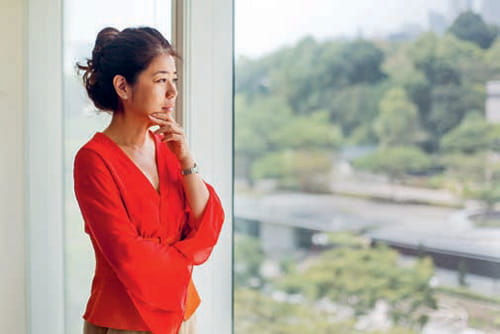
Jean Tan
Executive Director
Singapore International Foundation
he Covid-19 pandemic has brought to the fore one simple fact - that a crisis of such proportions needs to be addressed collectively on a global scale. Nowhere is this more evident than in the work of public health professionals whose quest to find solutions for the ongoing pandemic has resulted in fruitful collaborations between Singaporean and international academics.
Even in peacetime, global cooperation establishes trust and mutual understanding between countries that are essential to developing new capabilities and stronger bonds. In an exclusive interview, Dr Cheong Koon Hean, Chief Executive Officer of Singapore’s Housing and Development Board, shares how the country’s public housing and urban planning models have enabled us to connect with cities around the world.
While cross-border travel has been disrupted significantly, technology has played a crucial role in helping to maintain connections and collaborations. Our Singapore International Volunteers, for instance, have pivoted their regional capacity building efforts online. Meanwhile, two local businesses are leveraging technology to help underserved communities in Myanmar and Papua New Guinea gain access to micro-credit and medical supplies respectively.
Find out more about two homegrown non-profits – HealthServe, which provides low-cost healthcare to migrant workers in the city-state, and Relief Singapore, which carries out humanitarian assistance in disaster-stricken countries. They exemplify the work of public-spirited individuals who remain committed to building a better world.
While reaching out to diverse communities can mean facing cultural barriers, the arts are a useful medium for bridging these differences. In New Delhi, the SIF’s Arts for Good Fellows help marginalised children express themselves through painting, poetry and song. Closer to home, our Citizen Ambassador Sherry Soon uses art to create awareness about invisible disabilities. Singapore’s Intercultural Theatre Institute promotes a better understanding of diversity among its students while training them in contemporary theatre. And American investor Jim Rogers, who calls Singapore home, credits the country’s cosmopolitanism to its diversity of cultures and languages.
As we continue to adapt our lifestyles and change our mindsets to thrive in this new world, we hope these stories of compassion and courage will inspire you to reimagine a better future.
